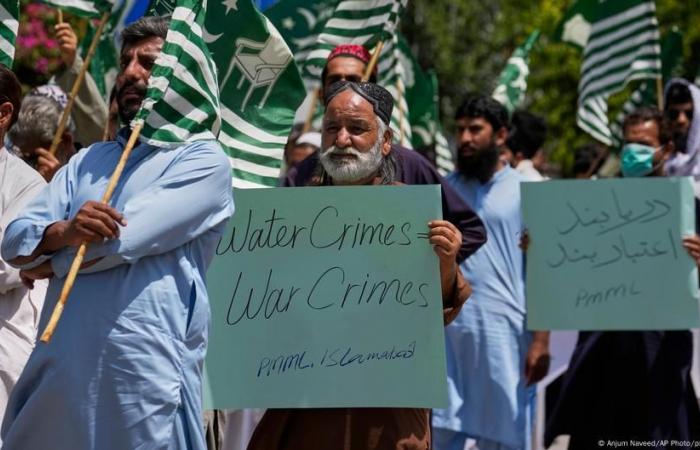Tensions between India and Pakistan are at their worst level in years. On Wednesday, India reduced the range of its diplomatic relations with its neighbor, closed a key border crossing and said it would suspend a treaty of water distribution until “Pakistan renounces in a credible and irrevocable way to his support for cross -border terrorism.”
Pakistan Foreign minister Ishaq Dar, challenged India this Thursday, April 24 to deliver any evidence that links his country with the attack, which killed 26 people near the city of Pahalgam. “India has repeatedly participated in the game of accusations. If you have any evidence of Pakistan’s participation in the incident of Pahalgam, we urge us to share that information with us and the community International, ”said Dar.
In a speech this Thursday, in response to the attack, the Indian Prime Minister, Narendra Modi, said that his country will “identify, pursue and punish each terrorist and their sponsors.”
According to reports from the Indian press, there were between five and six attackers who shot the victims for 10 minutes, after appearing from nearby pine forests carrying rifles. The survivors said the men approached the tourists and asked their religion. They were asked to recite Islamic verses, and if they failed, they were shot.
India and Pakistan demand the entire province of Kashmir, of Muslim majority. But each country governs only a few parts, which makes that border point a regional conflict culture where an insurgency has been operating in the areas under Indian control.
Water block, an “act of war” for Pakistan
After a high -level security meeting held on Thursday, Pakistan announced a series of reprisal measures against India. The Office of Prime Minister Shehbaz Sharif said that any attempt by India to divert the waters of the Indo River will be considered “an act of war.”
The Water Treaty of the Indo was mediated by the World Bank and signed by both countries in 1960. It had never been suspended, despite the multiple wars and skirmishes that the neighbors and archirrival have starred.
The treaty regulates the distribution of water from the Indo River and its tributaries. Pakistan depends on the water that flows down river from the back managed by India. According to the Reuters news agency, the treaty suspension should not have an immediate effect, since India does not have sufficient storage capacity to contain the river. However, it could affect the exchange of information on water flows.
-“The Indo Water Treaty can be a relic of the past that requires great modifications, particularly due to climate change,” says Dw Osama Malik, an international law expert based in Pakistan. “However, even so, it is a treaty that has been in force even in times of war.”
The expert adds that “this year there have been unusually scarce rainfall in Pakistan, and if India decides to reduce the flow, a catastrophic situation similar to a drought would occur and there would be food shortage.”
In Pakistan, concern also grows because Indian officials are suggesting the possibility of making military attacks. Television transmissions are dominated by defense analysts that warn about the unpredictable consequences that could arise if hostilities between these neighbors with nuclear weapons intensify.
Can tensions be reduced?
Neighbors on both sides of the border who talked to DW say they are concerned about the possibility that tensions become clashes. Rahul Sharma, a neighbor of Delhi, says that a total war between India and Pakistan would go back to both countries in economic terms.
“The decisions that the government of India has made so far are strong enough, it is not necessary to go further,” he says. Saad Ali, a Pakistani who lives in Islamabad, points out that “we cannot afford any war that puts people’s lives at risk. Both parties must show moderation and allow people to live their life peacefully.”
Maleeha Lodhi, an international affairs analyst and Pakistan’s ex -ambassador in the United States, tells DW that both parties have said their own. “What is needed now is to avoid a greater climb and quickly establish a communication channel to reduce tensions. However, if India undertakes any military action, everything will be lost and the risk of triggering a generalized crisis will be lost, because Pakistan will surely take reprisals.”
Pakistani defense minister, Khawaja Muhammad Asif, said on Thursday that India is fighting “a war of low intensity against us, and if they intensify his offensive, we are prepared. We will protect our country, we will not undergo any international pressure.”
(DZC/ers)






